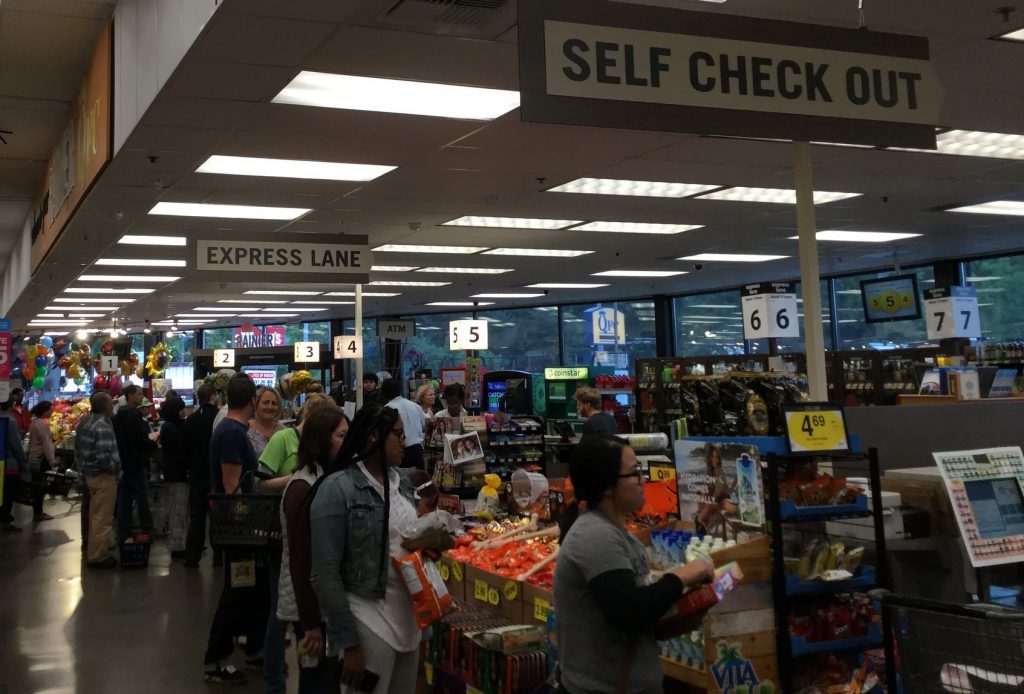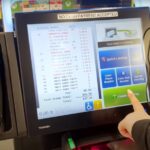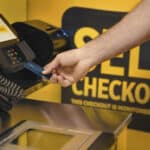
Are grocery store self-checkout machines bad for your health? Do they cause you to feel socially isolated, rattle your self-confidence and tempt you to steal?
A grocery employees’ union thinks so. So it’s proposing a law that would severely restrict the number of self-checkout stations that stores can provide, giving you ample opportunity – or little choice – to visit staffed checkout lanes run by friendly (unionized) employees.
The idea is being promoted by the Oregon AFL-CIO, which would affect hundreds of grocery stores across that state – and, supporters hope, could lead to a groundswell of support for similar measures in other states.
The union has taken the first step toward submitting a ballot initiative that could be put to a statewide vote next year. It’s turned in a petition with more than 1,500 signatures in order for the proposal to be considered. Once the review process is complete, it will take 112,020 signatures for the measure to appear on the ballot.
The “Grocery Store Service and Community Protection Act” would mandate that “grocery stores cannot have more than two self-service checkout stations operating at any one time per location.”
To read the proposed measure, it seems that self-checkouts are quite possibly the world’s worst invention. “The increasing use of self-service checkouts – where the customer does not interact with a human — contributes to social isolation and related negative health consequences,” the proposal reads. “Elderly customers and customers with disabilities often lack the confidence or ability to use self-service checkouts,” it goes on.
The union argues that self-checkouts also increase the risk for shoplifting, and for teens to purchase alcohol. They also “contribute to retail workers feeling devalued” and “essentially turn customers into unpaid employees.” And the union alleges that grocery stores purposely allow long wait times at traditional checkout lanes, in order to force more customers to use self-checkout lanes instead.
For the past couple of decades, shoppers and stores alike have had a love-hate relationship with self-checkouts. Several grocery chains that once had self-checkouts, like Albertsons, Hy-Vee and Big Y, very publicly got rid of them, patting themselves on the back for their commitment to personal customer service – only to relent years later and bring self-checkouts back. While acknowledging that self-checkouts allow them to have fewer cashiers and baggers on duty, many retailers deny they’re employing fewer workers and say that having self-checkouts simply frees up employees to perform other tasks.
But self-checkouts are one of the reasons that grocery unions weren’t big fans of Fresh & Easy, a former California grocery chain that had no cashiers at all – only self-checkouts. The unions backed a proposed state law, which ultimately passed, that forbade alcohol from being sold at self-checkouts. The law, purportedly aimed at preventing underage shoppers from buying booze, had the added effect of forcing a self-checkout-only store like Fresh & Easy to provide staffed checkout lanes, staffed by unionized cashiers.
This time around, the Oregon union is making no bones about the fact that its proposed law is aimed at protecting workers. Yeah, it will help prevent social isolation and all that, but it will also help save union jobs. “The widescale use of self-checkout machines in our state’s grocery stores is part of a deliberate corporate strategy that relies on automation to reduce labor costs and eliminate jobs,” Oregon AFL-CIO President Tom Chamberlin said in a statement.
Some observers have noted that the union’s proposal comes in the midst of contract talks between Oregon grocery store workers and the Fred Meyer grocery chain. So the idea could be less about expressing genuine concern for shoppers’ well-being, and more about introducing a contract negotiating tactic.
Either way, if the proposal ends up becoming law, any store that violate the rule by offering too many self-checkout machines would be fined the equivalent of one day’s salary for its highest-paid worker. Fines will accumulate from there, until the retailer relents and reduces its number of self-checkouts to just two.
In an age of self-checkout machines, scan-and-go, grab-and-go, online shopping and other do-it-yourself ways of getting your groceries, trying to restrict only one of those methods may prove to be a losing battle. But that’s not stopping the union from trying. So if you like going it alone, you might not want to do your grocery shopping in Oregon after next year. If enough Oregonians agree with you, though, it may never even make it to a vote – which means, for better or worse, the machines may end up the real winners.















